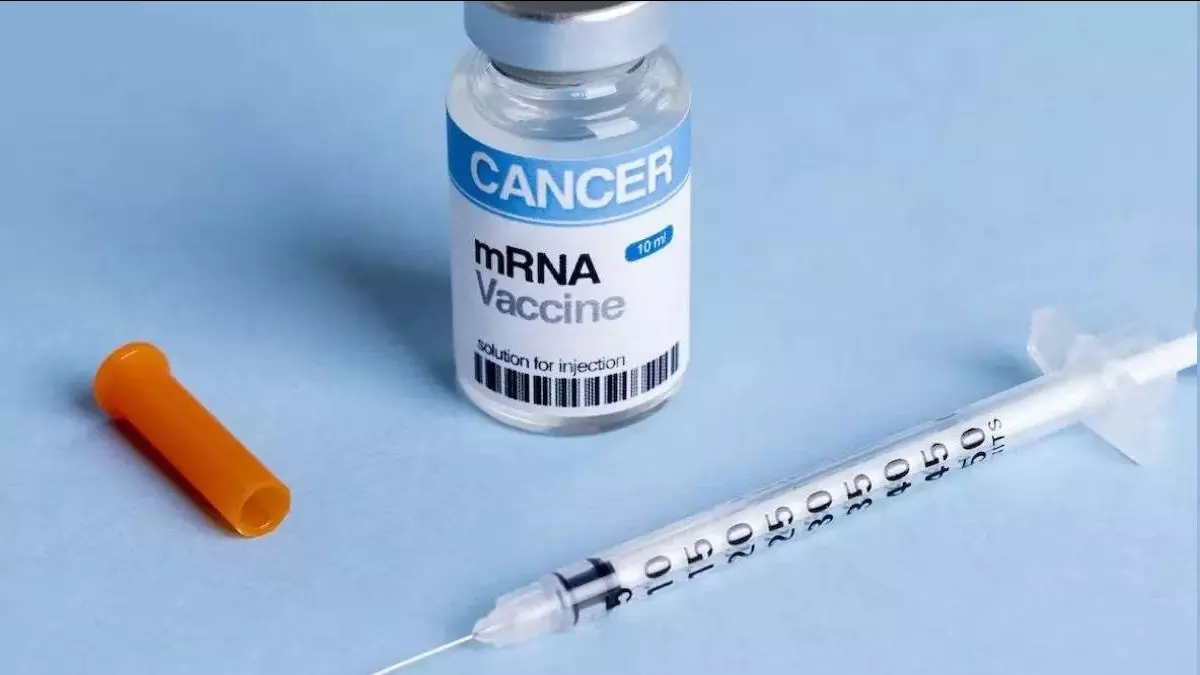
Enteromix explained: Can Russia’s cancer vaccine really save lives?
Russia claims its mRNA vaccine Enteromix is 100 per cent effective in early trials against colorectal, brain, and skin cancers. Can this be a real breakthrough?

According to the World Health Organization, cancer kills nearly 10 million people every year. Against this backdrop, Russia has announced what it calls the world’s first cancer vaccine, Enteromix, claiming 100% success in its initial trials. The mRNA-based shot is designed exclusively for cancer patients.
Unlike preventive vaccines, Enteromix is tailored for each patient. Doctors take a sample of the patient’s tumor, decode its genetic profile, and create a personalised mRNA vaccine. When injected, it trains the immune system to recognise and destroy cancer cells directly.
In an early trial involving 48 colorectal cancer patients, tumors shrank significantly — and in some cases disappeared altogether. Importantly, no major side effects were reported, unlike chemotherapy or radiation, which can harm healthy cells.
How it works
Russia says Enteromix targets three cancers: colorectal, glioblastoma, and melanoma. Early research suggests it could also help treat lung, breast, and pancreatic cancers. The vaccine is most effective in early stages, but in advanced cases, it may slow tumor growth and extend life expectancy.
If approved, Enteromix would be the world’s first personalised mRNA cancer vaccine. But oncologists warn that results from 48 patients are far from conclusive. Larger, multi-phase trials are needed to confirm whether the 100% success rate holds over time.
“If you ask me whether it will come to market tomorrow — no, it won’t,” said Dr Manikandan Venkatasubramaniyan, Senior Consultant, Surgical Oncology, MGM Cancer Institute, Chennai. “It’s only in phase one. Before reaching the public under proper guidelines, it must complete phase two and large randomized phase three trials. It’s still at a nascent stage, but it is promising.”
Impact on India
Cancer cases in India, particularly colorectal and cervical cancers, are rising rapidly. If Enteromix proves effective, it could be a game-changer here. However, it would first require approval from the Drug Controller General of India (DCGI) and successful local trials.
Pricing is another challenge. In Russia, one dose reportedly costs about ₹2.5 lakh, though Russian citizens may receive it for free. In India, the final price would depend on manufacturing, imports, and possible government subsidies. If added under the National Health Mission, the vaccine could become affordable or even free for eligible patients.
Russia’s Enteromix offers fresh hope in the fight against cancer. Yet experts stress that it is not a global cure — at least not yet. The coming months and larger trials will determine whether this “100% effective” vaccine is truly a medical revolution or simply another headline.
The content above has been transcribed from video using a fine-tuned AI model. To ensure accuracy, quality, and editorial integrity, we employ a Human-In-The-Loop (HITL) process. While AI assists in creating the initial draft, our experienced editorial team carefully reviews, edits, and refines the content before publication. At The Federal, we combine the efficiency of AI with the expertise of human editors to deliver reliable and insightful journalism.

